Matthew Schofield: Mum of son who died after attack calls for new law
- Published
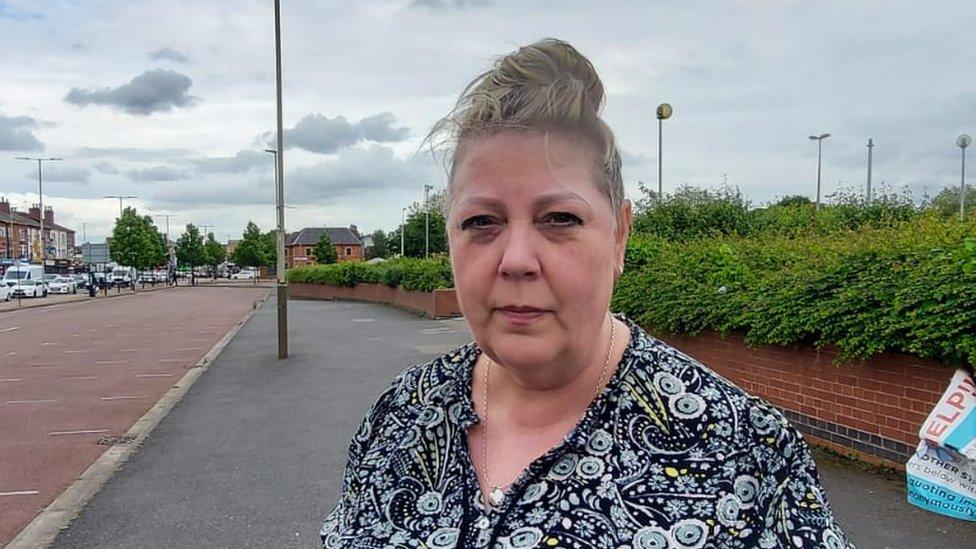
Emma Daniels said her son was left lying in the street for at least an hour and a half, before he was declared dead at the scene
The mother of a man who was attacked and left to die is calling for a new law giving people a legal duty to seek help if a person is in danger.
Emma Daniels said "nobody stopped to help" her son Matthew Schofield after he was assaulted in Leicester in 2023.
The 34-year-old was found in Belgrave Road in the early hours of 11 June, before being pronounced dead.
Mrs Daniels said her son "dying alone" was one of the most difficult things she had to accept.
A murder investigation into Mr Schofield's death is ongoing, with a total of 16 people arrested in connection with his death. Nobody has been charged.
Now Mrs Daniels wants to introduce a law, external that would mean people have a duty to stop and help someone who appears to be in physical danger, without risking their own safety.
She said the proposed bill, which she calls Matthew's Law, would mean people have a legal duty to call for professional help for a person in danger, or face legal implications for ignoring them.
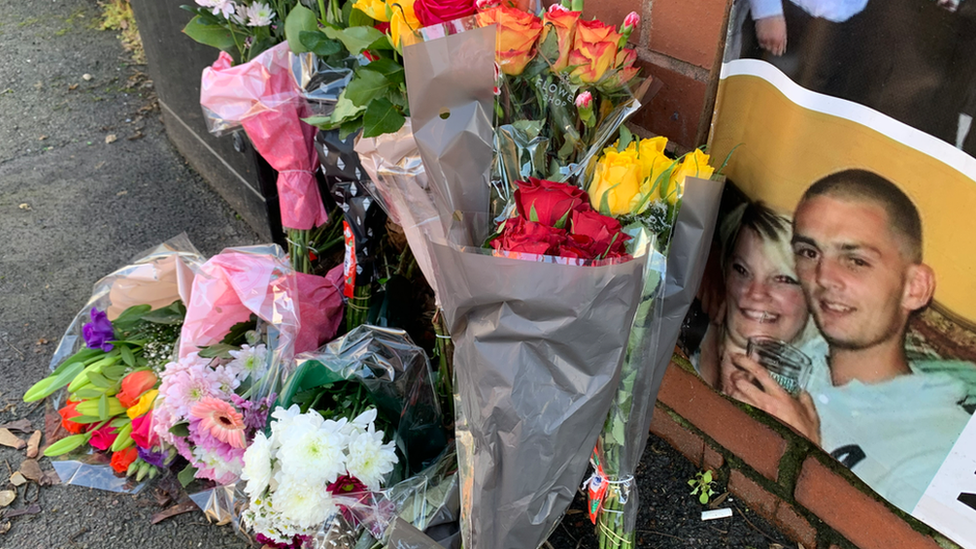
Flowers at the scene where Mr Schofield died
Det Insp Mark Parish, from the East Midlands Special Operations Unit (EMSOU) murder investigation team, said in a BBC Crimewatch appeal in March that Mr Schofield could still be alive if someone went to his aid sooner.
His mum said her son was lying "face down" for at least an hour and a half.
She said: "I cannot believe that nobody saw him. An hour and a half is so crucial when somebody is suffering.
"I don't know how he was feeling, I don't know whether he was conscious - I haven't got a clue and that's something that should just never happen again."
She added: "I know nobody stopped because I've seen the CCTV footage."

Do similar laws exist already?
Similar laws are currently upheld in countries around the world, including many European nations as well as some US states.
Under the German criminal code, external, a person can commit a crime by failing to render assistance in the event of an accident or common danger or distress where it is necessary and reasonable without it being a danger to themselves.
A failure to assist a person can lead to a custodial sentence of up to one year or a monetary penalty.
In 2017, a judge imposed heavy fines on three people in the Germany city of Essen for ignoring an elderly man who collapsed next to bank cash machines.
The French penal code, external says a person can be punished by a fine or imprisonment for refraining from preventing a crime or offence against the "physical integrity of a person", or for wilfully refraining from giving a person in danger assistance - both without risk to themselves.

Since Mr Schofield's death, Mrs Daniels has held two vigils at the scene where he was found, with both held roughly about the same time he was left lying on the ground.
She said during one vigil, she counted "hundreds of cars" pass by, as well as people walking past, and that she could "only assume" it was as busy on the night her son died.
The 53-year-old, who is a nurse, said being able to reassure a patient at the end of their life was "one of the biggest honours".
"That's what everybody should have. I don't know how long he was suffering, but he was on his own for a long, long time and he didn't deserve that," she said.
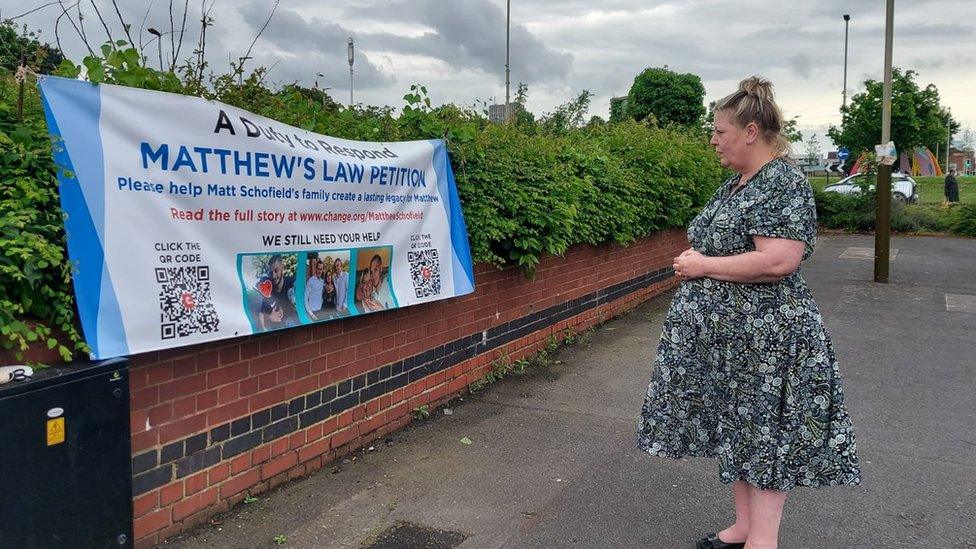
Mrs Daniels is still appealing for anyone with information about her son's death to go to the police
Prof Sally Kyd, the head of Leicester Law School at the University of Leicester, said she did not believe such a bill would get parliamentary support.
She said: "There's lots of reasons why. One being this idea of autonomy, the other being how you would enforce it."
The criminal law professor questioned whether "already stretched" police forces would have to find people who "may have walked by" a person in danger, whilst also trying to find the perpetrator of a crime.
She added in previous discussions among pupils, some students held the view that "criminal law should be used to enforce morals", while others said "people should be free to go about their business without worrying about whether their becoming involved in what could be a dangerous or traumatic situation".
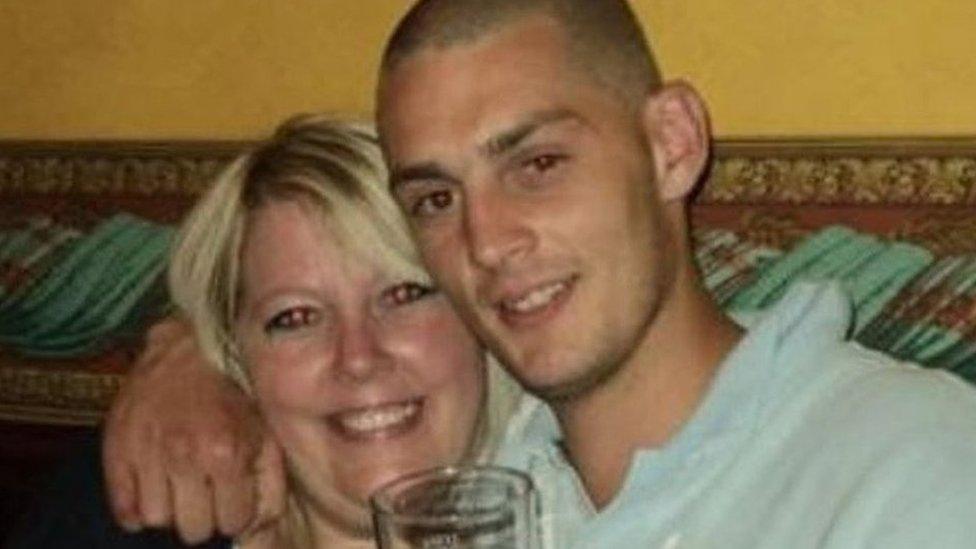
Mrs Daniels said she "can't stop the feeling of panic" knowing she will never see her son again
Mrs Daniels's petition would need at least 10,000 signatures before it can get a response from the government, and it can only be considered for debate in Parliament after 100,000 signatures.
She said although she knew that it would be difficult to achieve, she believed others would agree that such a law should be considered.
Leicestershire Police said the investigation into Mr Schofield's death was ongoing.

Follow BBC Leicester on Facebook, external, on X, external, or on Instagram, external. Send your story ideas to eastmidsnews@bbc.co.uk, external or via WhatsApp, external on 0808 100 2210.
- Published10 January 2024
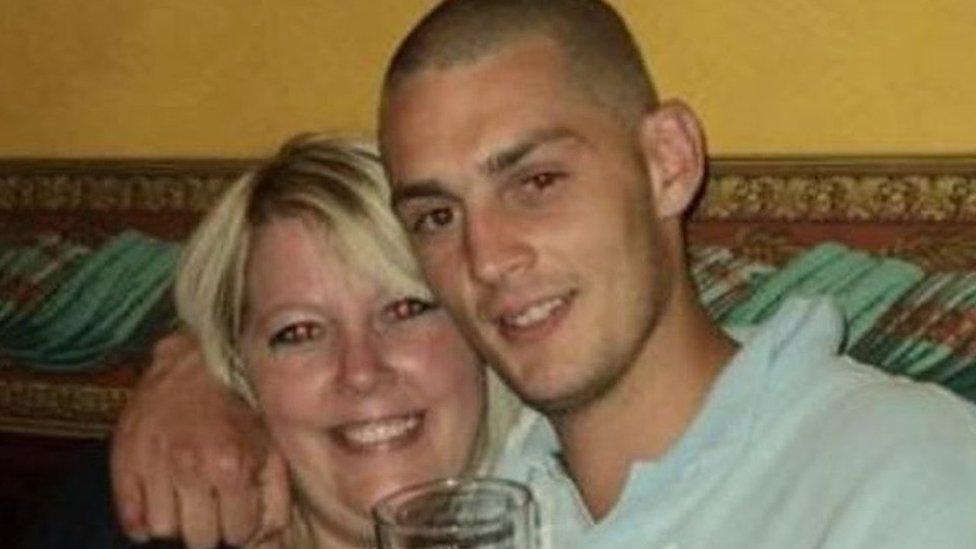
- Published11 December 2023
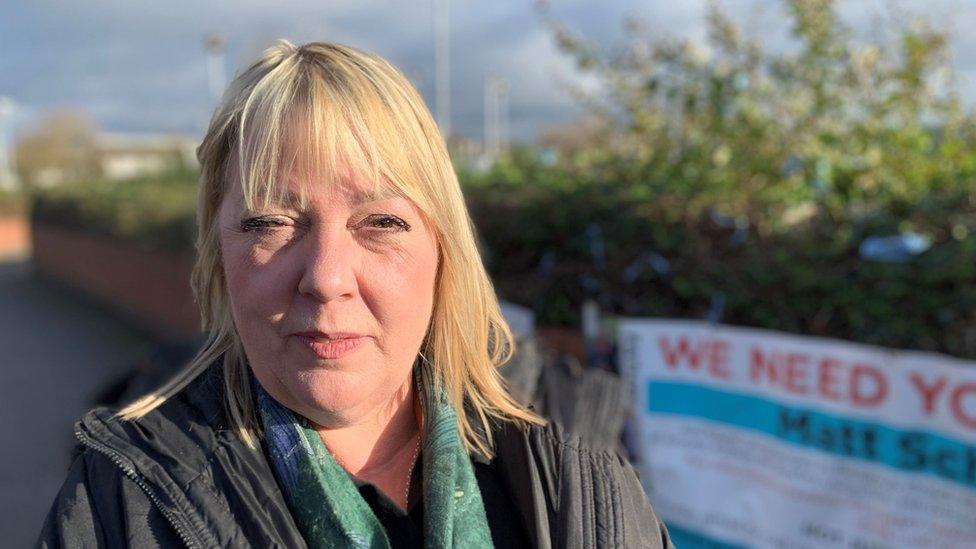
- Published31 August 2023
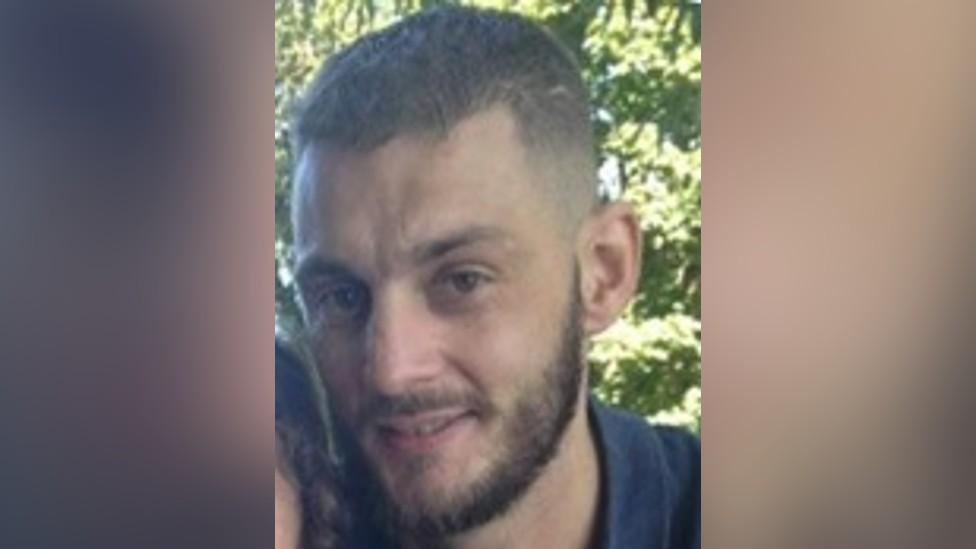
- Published12 June 2023
